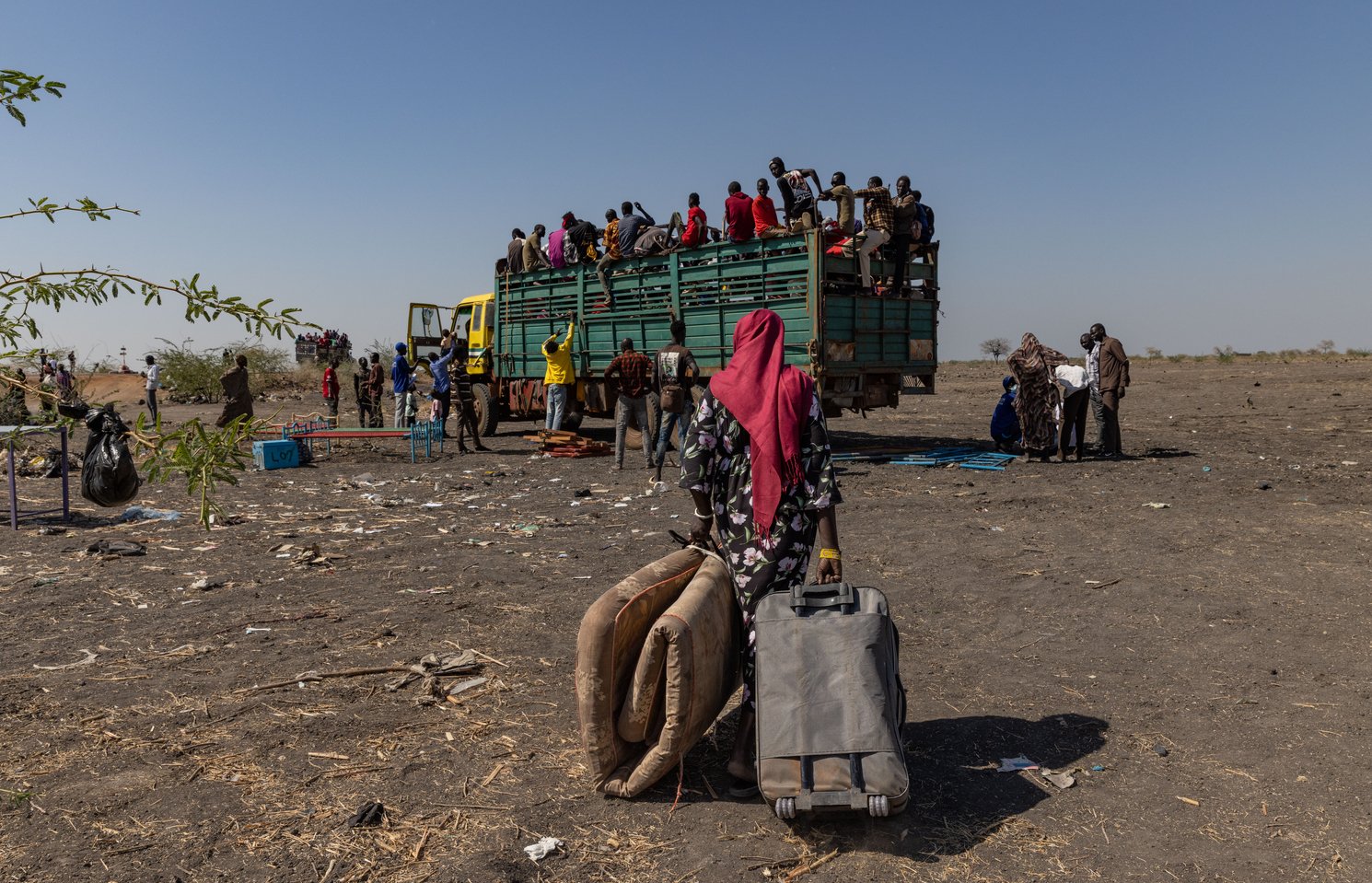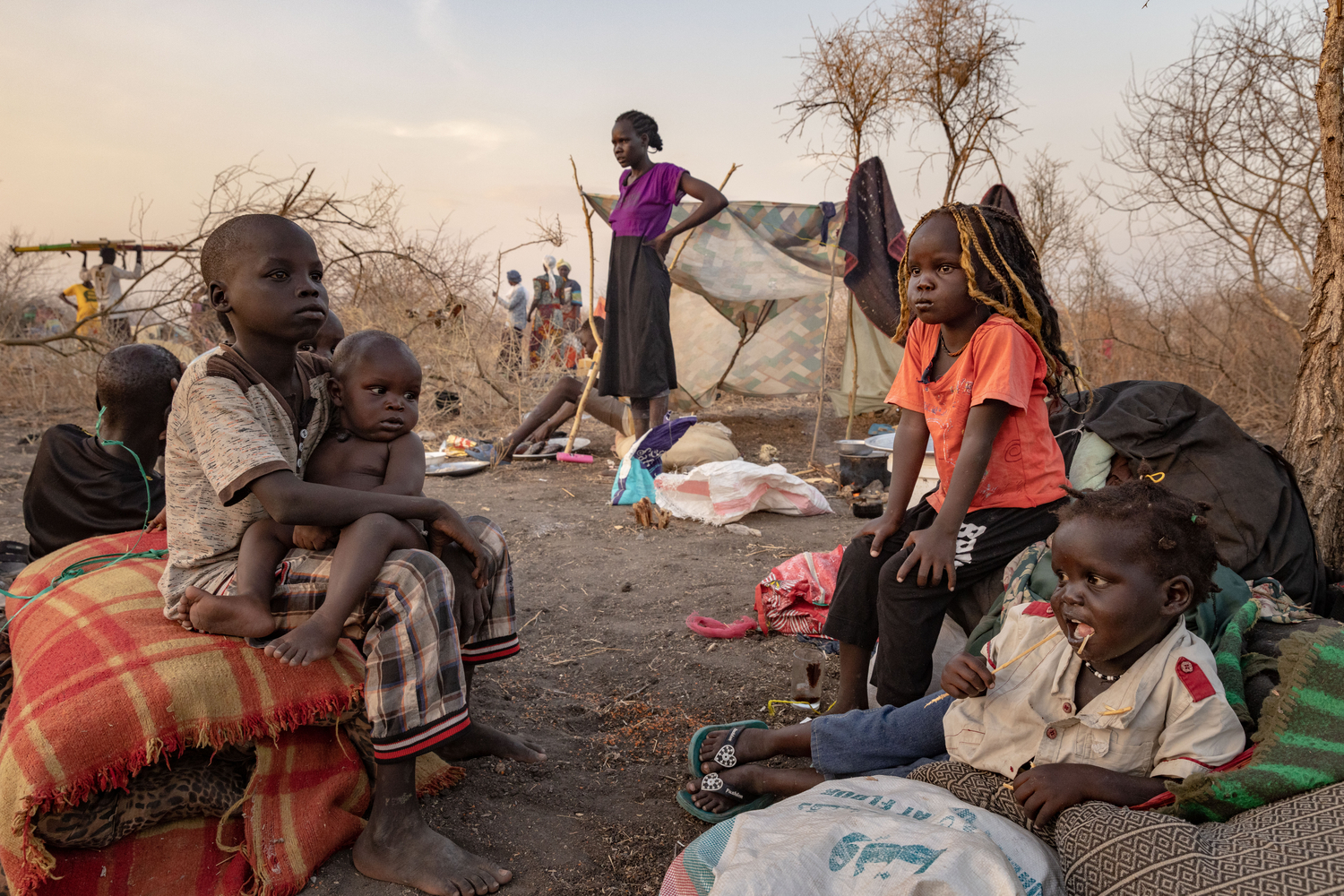Thousands of Central African refugees may go home after coup
Thousands of Central African refugees may go home after coup
KINSHASA, Democratic Republic of the Congo, March 18 (UNHCR) - Days after a coup d'état in the Central African Republic (CAR), refugee leaders in the neighbouring Congos have asked the UN refugee agency to help some 5,000 refugees in both countries return to their war-ridden homeland.
Saturday's coup saw former army chief François Bozizé seizing power in CAR, after which he invited his compatriots home in a radio address to the nation.
On Monday, many of the some 1,000 Central African refugees in Betou, northern Republic of the Congo, said they would like to return home. Among them are former civil servants who would like to regain their jobs in the civil service.
"They have clearly decided that it's time to go back to Bangui to take part in the political dialogue announced by the new President," said Emile Bellem, the head of the UNHCR office in Betou. "They feel it is urgent to return right away so that they have a better chance to resume their positions in the public administration."
The Central African refugees at Betou are the remnants of an initial group of thousands who had fled CAR for the Republic of Congo in the aftermath of a failed coup attempt by former President André Kolingba in May 2001. More than 15,000 also fled to the border town of Zongo in the Democratic Republic of the Congo (DRC), across the Oubangui river from the Central African capital, Bangui.
While many returned home in the months following the May 2001 coup, nearly 4,000 stayed behind in both countries. In the DRC, UNHCR transferred nearly 3,000 to Mole, a refugee site 40 km from Zongo. In the Republic of Congo, UNHCR has assisted some 1,000 others in the Betou area for the last two years. Another 1,000 arrived in mid-February this year following rebel fighting in southern CAR.
Some of those currently seeking to return to CAR had been given heavy jail sentences, in absentia, for their alleged involvement in the coup attempt of 2001. Some had been condemned to death, others to life imprisonment. A majority of refugees in Betou and Zongo were associated with the former military ruler, Kolingba, because of their ethnic origin or because they were related to his allies.
While refugees at Betou seem eager to go back to CAR, the enthusiasm appears more guarded among refugees at the DRC's Zongo, which was rocked on Monday night by unexplained gunfire.
A former army general and influential member of the Central African community in exile in the area called on all the refugees in Mole camp to return to Bangui. But the refugees told UNHCR staff they would like to be repatriated once they receive assurance on the security situation in the Central African capital.
Following the recent coup, armed youths have been looting and terrorising the Bangui's residents, targeting foreign nationals in particular. In his radio address on Sunday, Bozizé imposed a dusk-to-dawn curfew to curb rampant looting.
Meanwhile, UNHCR has been unable to confirm the situation of more than 50,000 refugees in CAR, some of whom have been living in the now volatile capital. The refugees are mainly from the DRC, Rwanda and Sudan. The agency's ability to operate is hampered by an overall lack of security in Bangui.
UNHCR's principal partner, the National Refugee Commission, has lost everything to looters, who took all of its vehicles and office equipment, vandalising the office building, carting off doors, windows and even roof tiles.
The UN refugee agency itself has lost one vehicle to armed gangs in Bangui. The homes of four of UNHCR's staff were cleaned out by looters, and the agency's staff have been sleeping away from their homes because of safety concerns.








